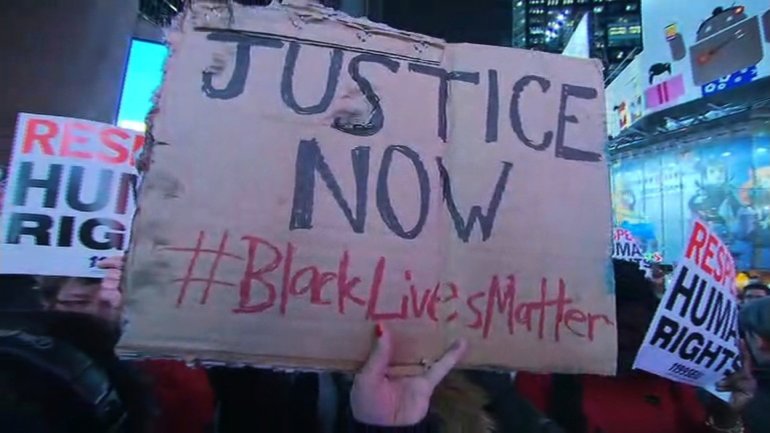(CNN) — #BlackLivesMatter has been a hashtag, a mantra, a movement and now it’s a college course.
This spring, Dartmouth College will offer a new class, “10 Weeks, 10 Professors: #BlackLivesMatter,” which will examine race, violence and inequality through current events and throughout history.
The 2014 deaths of Michael Brown in Ferguson, Missouri, and Eric Garner in New York during confrontations with police sparked conversations on social media and protests around the world, including Dartmouth’s Hanover, New Hampshire, campus.
“Even though we might be sort of cloistered away in the ivory tower or something, we felt very much moved by, incited by, inspired by a lot of the activists’ work following the failure to indict Darren Wilson after the events in Ferguson,” said Aimee Bahng, an assistant professor of English at Dartmouth. “We wanted to not leave this behind after winter break.”
Then, around Martin Luther King Jr. Day, Missouri Rev. Starsky Wilson, co-chairman of the Ferguson Commission, spoke with Dartmouth faculty about “teaching Ferguson.” By the end of Wilson’s two-hour workshop, faculty members were already brainstorming how to integrate the events and the response into coursework and campus life.
The result was a teaching collective that draws faculty from geography, history, English, math and other areas, and the idea for an interdisciplinary course crafted and taught by all of them. The course is also expected to draw outside speakers and to explore ways to engage the community beyond parading professors in front of lecture halls.
“There is a special energy around this,” said Abigail Neely, an assistant professor of geography at Dartmouth. “It’s designed to transgress the boundaries between disciplines in an effort to do some really deep, sustained critical thinking about some of the most important issues in the country and world at this moment.”
The course came together quickly with support from college leaders and Dartmouth’s African and African-American Studies Program, Neely and Bhang said. Enrollment opens on Friday, but faculty members are still finalizing the syllabus and deciding how many students will be admitted.
An early lesson is expected to focus on St. Louis and its racial history. Another will consider poetry, prose, music and religious sermons. Still others will look at how events in Ferguson were documented through different media and how black activism has evolved, “from hip-hop to hashtags.”
As word spread about the course, there’s been an outpouring of support on campus, Bahng and Neely said. Far more than 10 faculty have signed on — as of Wednesday, 21 are “thinking together, teaching together, working together” — and students have approached to ask whether they can sit in on the course, even if they aren’t enrolled.
In planning the course, “we’ve already begun the work as a teaching collective,” Neely said. “I’m so excited to see what happens when the students join.”




